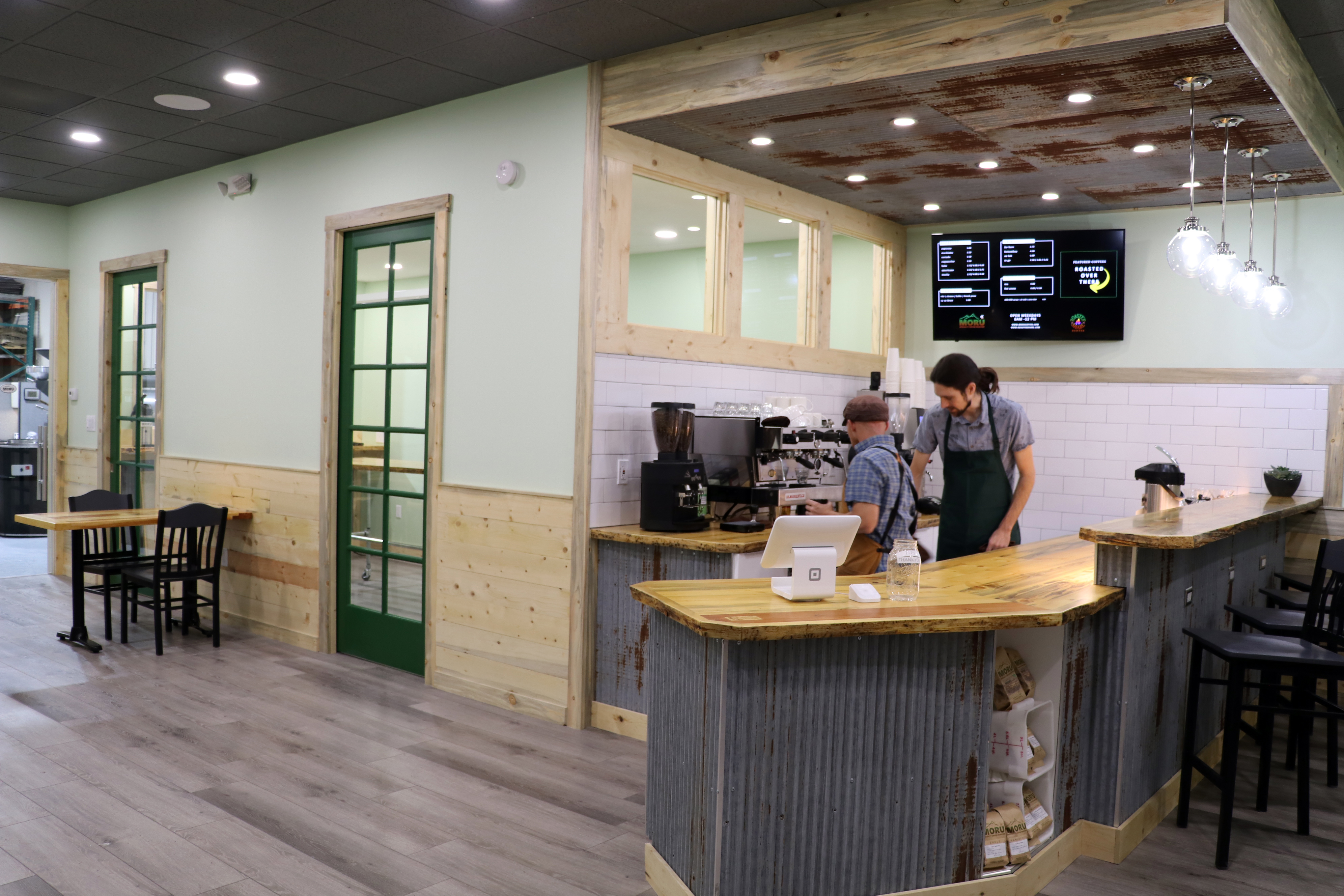
Inside the new 1,800-square-foot coffee bar and roastery of Moru Specialty Coffee Roasters. Photo by Nicole Diefenbach, courtesy of Moru Coffee.
For casual coffee drinkers in Denver, an exciting new option for a diverse selection of cups has arrived with the opening of the first retail bar from three-year-old Moru Specialty Coffee Roasters.
Yet for the specialty coffee industry of Colorado and beyond, this new shop is only the tip of a widely progressive iceberg.
Not long after Scott Mowrey and Kenneth Ruterbories roasted the first batch of Moru coffee over Thanksgiving weekend in 2016, the company created RoasterShare Denver, a cooperative educational and training space for other aspiring start-ups and shop-owners to build knowledge and rent time on MORU roasting and cupping equipment.
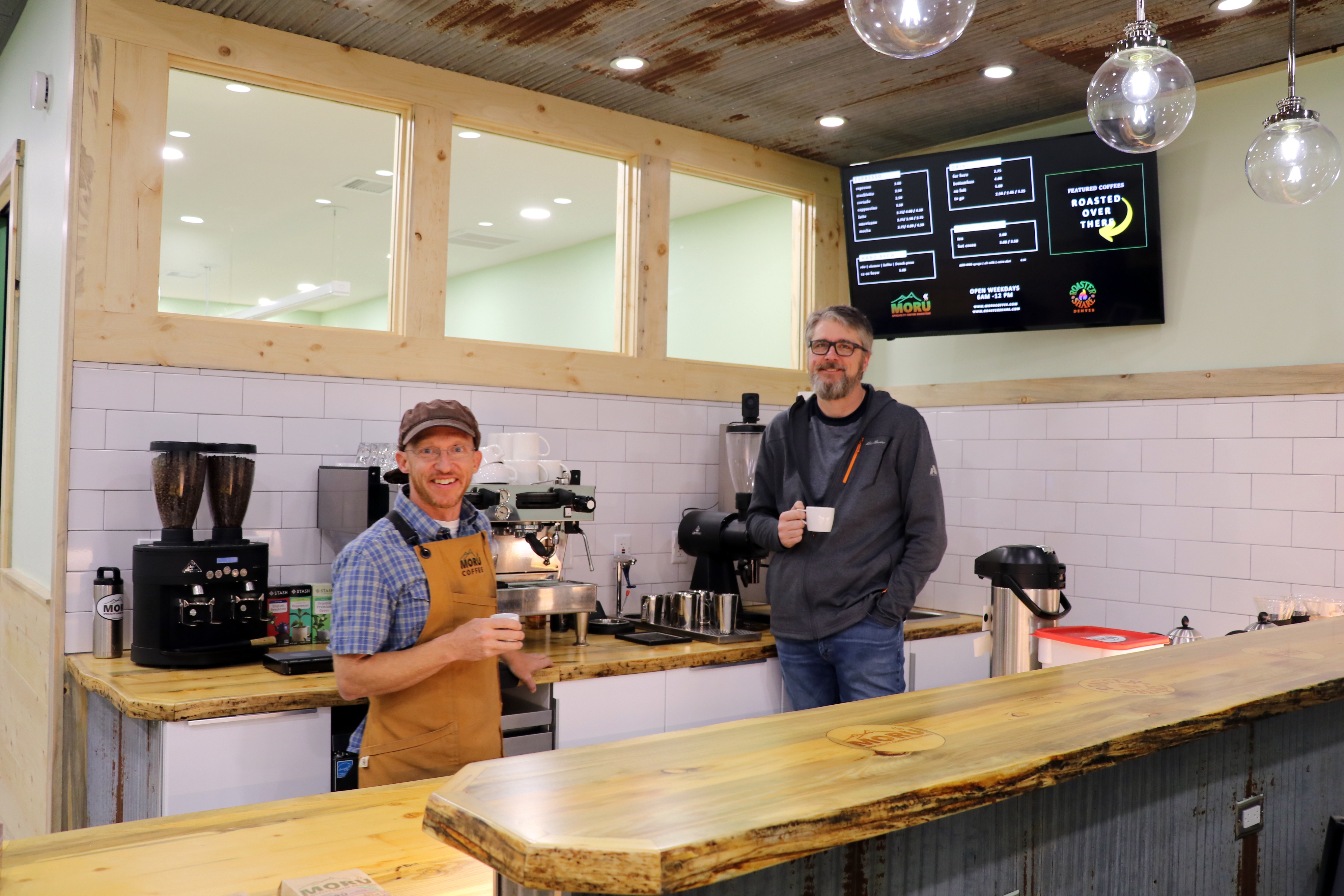
Moru Coffee and RoasterShare Co-Founders Kenneth Ruterbories (left) and Scott Mowrey. Photo by Nicole Diefenbach, courtesy of Moru Coffee.
“RoasterShare was created to provide incubation space, and a place for the Rocky Mountain community to roast coffee and to learn about all the components from green to cup,” Ruterbories, a former Denver district manager for Diedrich Roasters, told Daily Coffee News. “[It] now has over 20 members and growing.”
Two years later, this collaborative approach expanded with the launch of Collaborative Origins, a “farmer-centric” green coffee purchasing collective. By joining the group, roasters open their personal farm relationships up to other members, creating a more profitable market for their farmer partners while also gaining access to the farm-direct relationships of other member roasters.
Ruterbories said that the increase in sales for producers helps them better identify their market before the beginning of the season so they can allocate resources more efficiently. Beyond that, Collaborative Origins’ roaster member can opt to offer their farmer partners what the collaborative calls “Producer Dividends,” which come from a share of roasted coffee sales.
“It has as its mission to return a portion of sales to farmers and mills at origin, so that coffee farming can be sustainable and coffee can continue to be produced by individual farmers,” said Ruterbories. “Collaborative Origins is the link to provide farmers access to a market while moving roasters’ green purchasing from spot to origin. Through the collaborative’s economies of scale in marketing and logistics, roasters can realize savings, while promoting their farmer relationships to other roasters.”
Ruterbories said Collaborative Origins’ additional benefits may include origin trip opportunities, marketing services, logistics services from origin to roaster, and access to cuppings at the Moru cupping lab.
Ruterbories, who has a background in finance, is also a former Denver district manager for Idaho-based Diedrich Roasters. Prior to Moru, Mowrey managed avionics, aircraft maintenance and industrial safety for private and military aircraft fleets, and has his MBA from the University of Denver.
Inside the new 1,800-square-foot coffee house in southeast Denver, a 5-kilo Diedrich roaster alone is probably exciting enough.
An 850-square-foot production area complete with racked green coffee storage, a two-barrel Joper sample roaster, a 5-kilo Diedrich and a 15-kilo Joper roaster hums onsite. An enclosed cupping lab is visible by patrons in the 800-square-foot retail coffee bar area, where guests can enjoy drinks prepared on a 2-group La Marzoco Linea machine paired with a Mahlkönig K30 Twin espresso grinder.
A Mahlkönig EK43S grinds for various manual pourover methods and Fetco drip,all based on coffees roasted not only by MORU but by other RoasterShare members as well.
“We are intent on building a collaborative coffee experience from farm to cup, in an environment that promotes education, a cooperative roastery and lab, and a place to enjoy an exceptional, diverse cup of coffee,” said Ruterbories. “Now, we just stay busy with all of the pieces of the coffee chain, and sit down with a nice cup of coffee ourselves.”
The MORU Coffee Bar is now open at 1900 S. Quince St., in Denver.
Howard Bryman
Howard Bryman is the associate editor of Daily Coffee News by Roast Magazine. He is based in Portland, Oregon.




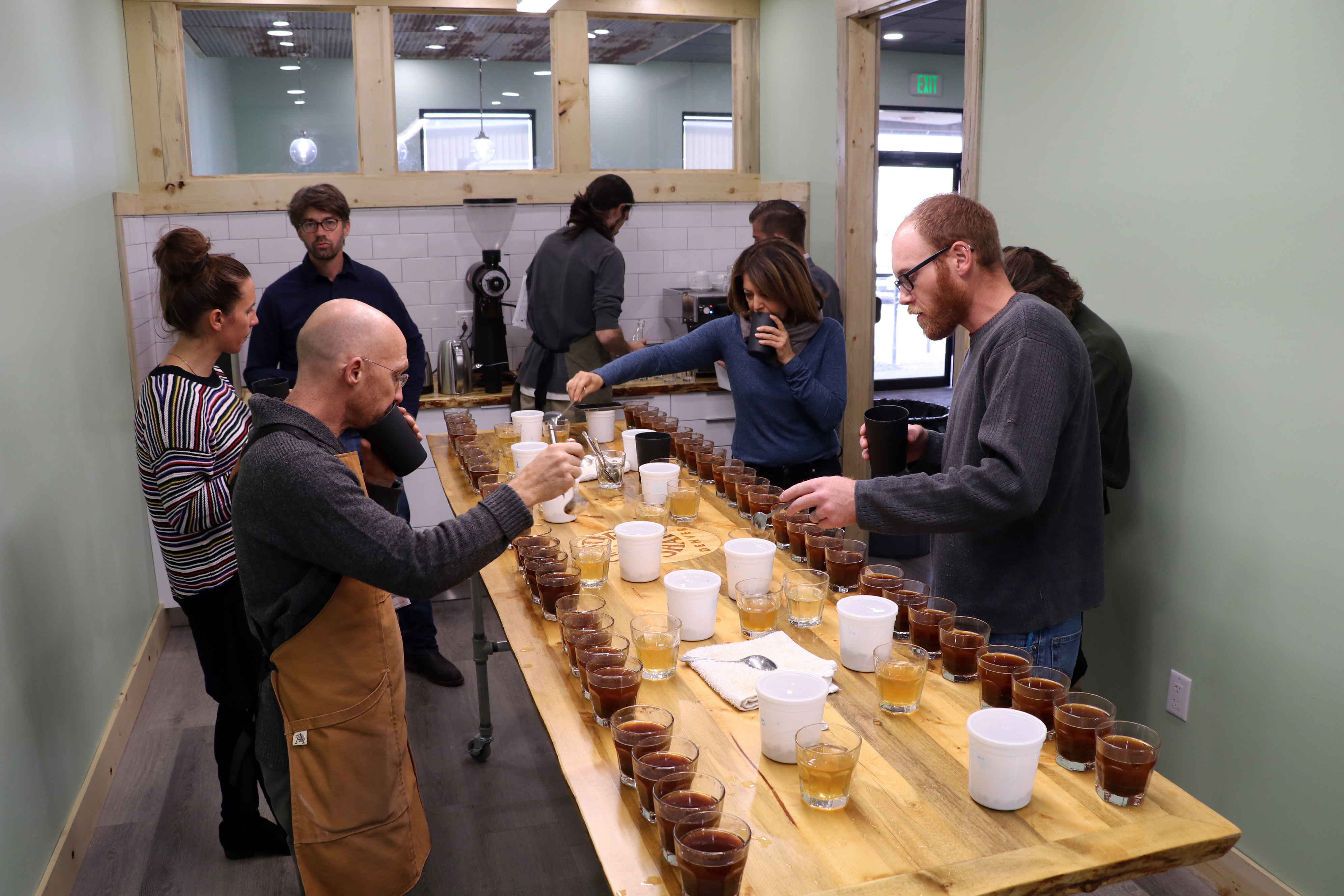
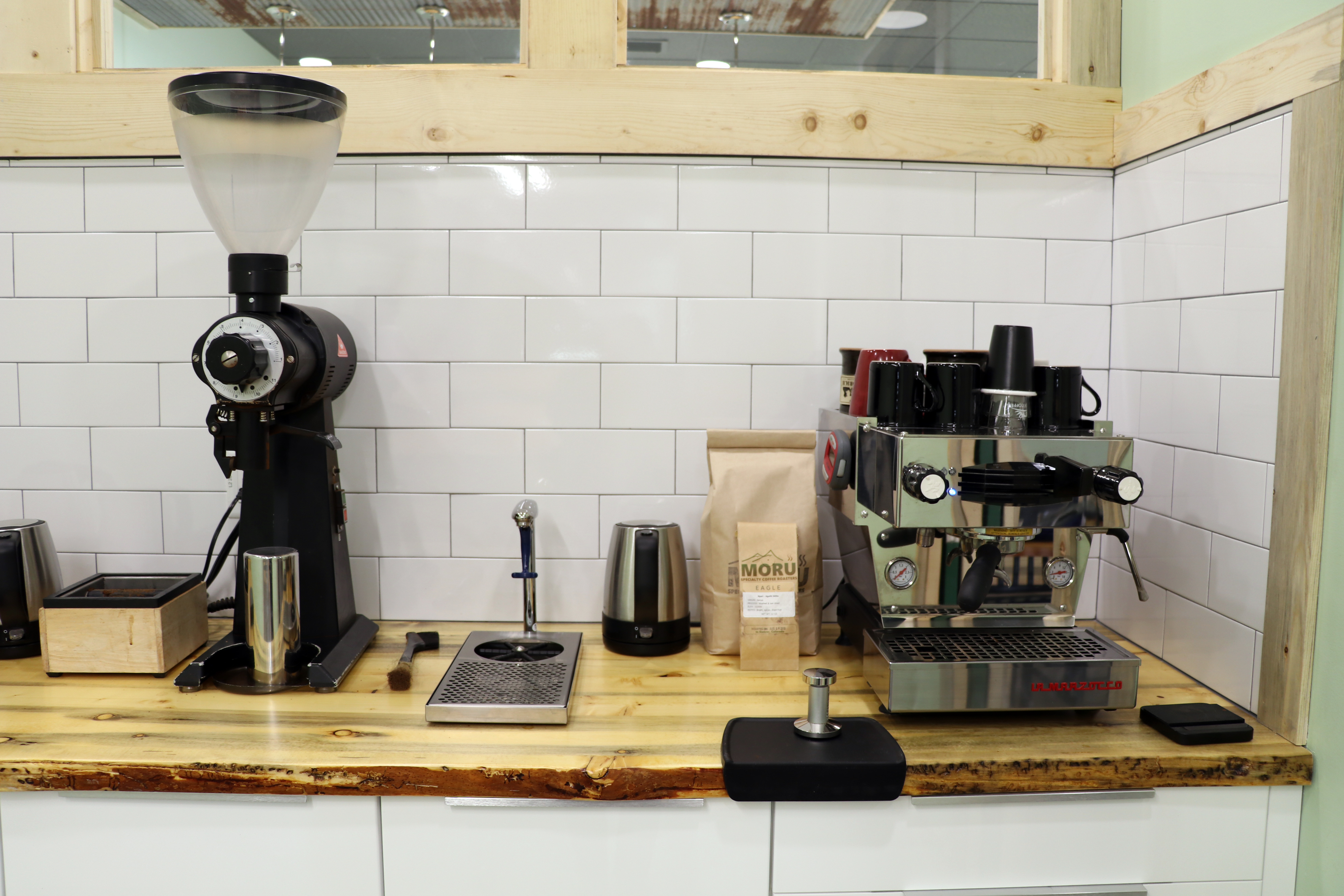
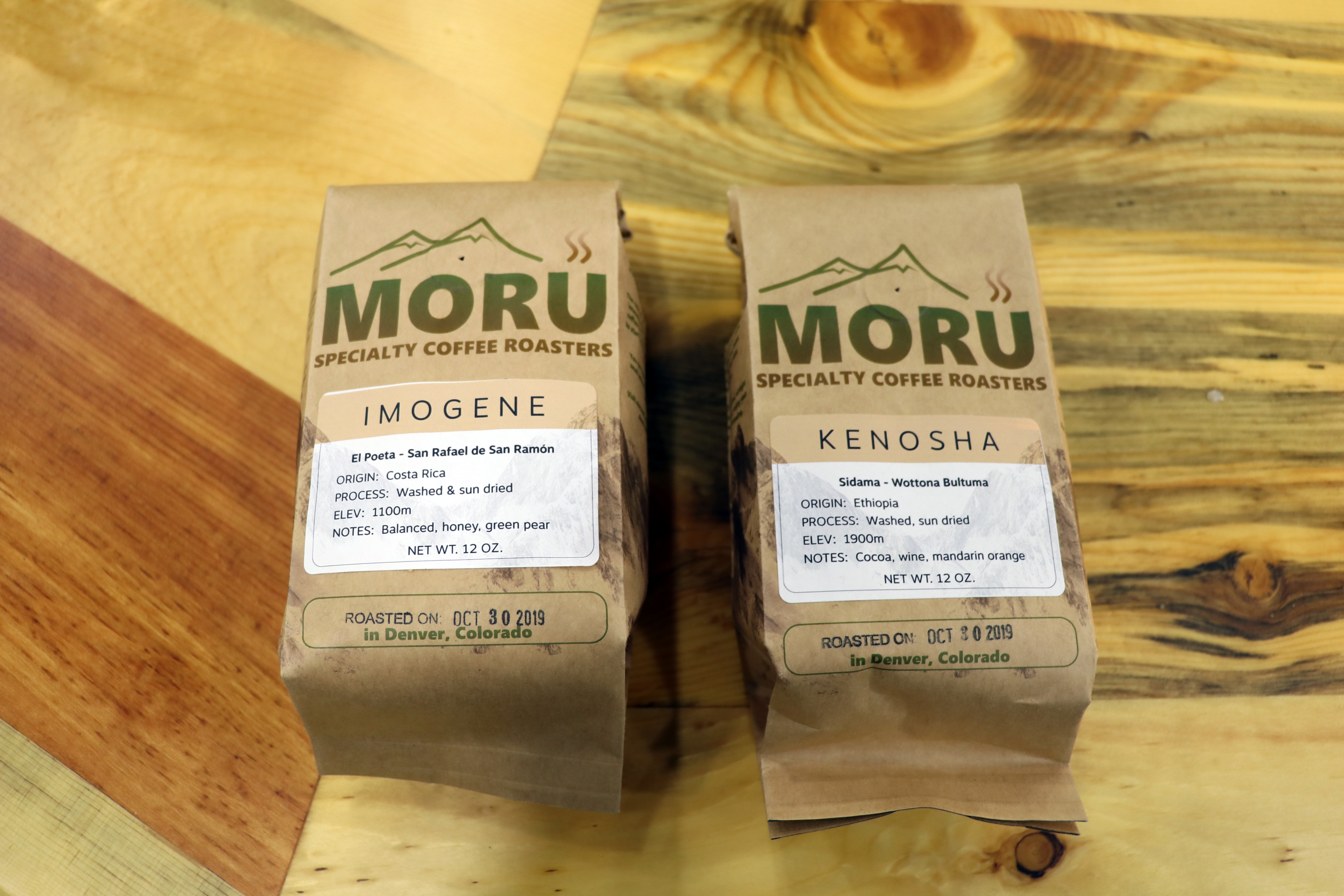



It’s really great that the collaboration starts from Farmers to cup..Is there any chance that this kind of collaboration can begin with new farmers apart from who you have now?